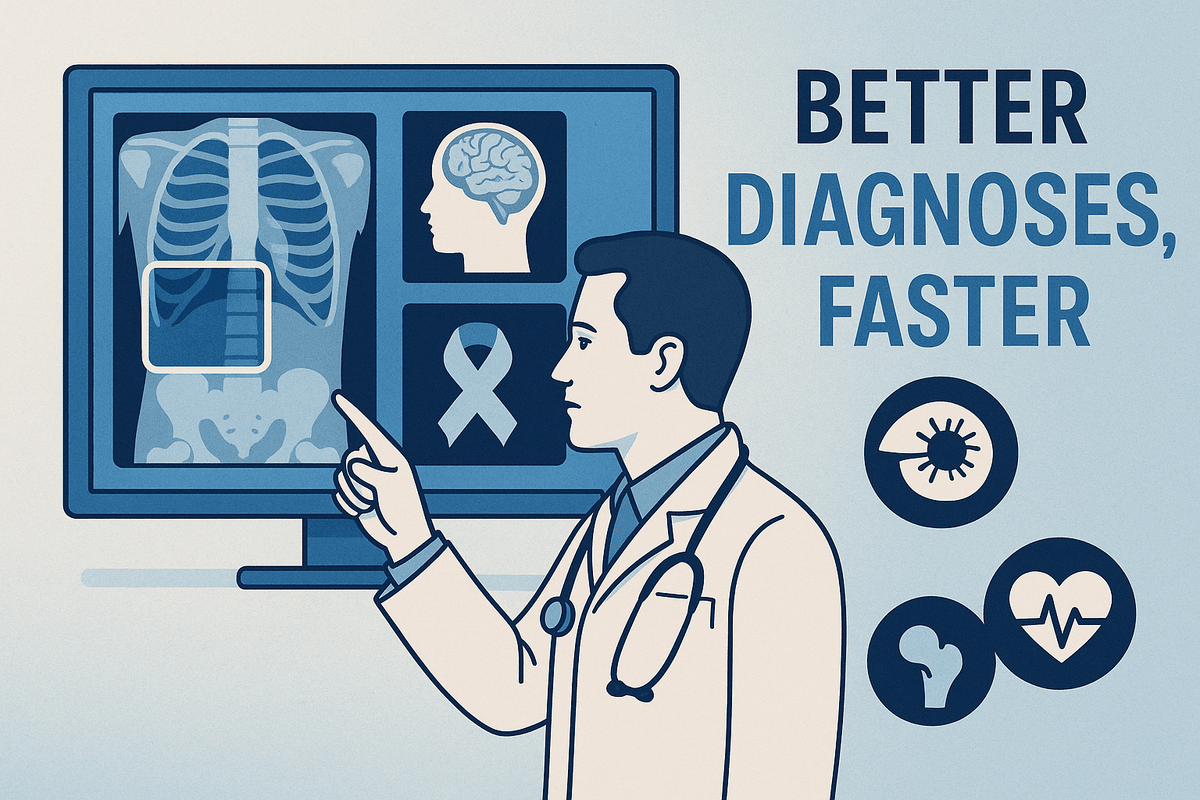Better Diagnoses, Faster
Sometimes it takes a while to figure out what’s wrong with a patient. But AI is helping doctors speed that up. It can look at X-rays, MRI scans, and tons of data in seconds and point out things that might take hours to spot.
For example, some AI systems can detect signs of cancer, eye diseases, or even heart problems—sometimes earlier than a human doctor would. Of course, it doesn’t replace the doctor, but it’s like giving them a superpower.

Better Diagnoses, Faster
Personalized Treatment
Every person’s body is different, right? What works for one patient might not work for another. AI can go through huge amounts of medical data to help doctors figure out which treatment is most likely to work for you.
So instead of one-size-fits-all, it’s more like: “Hey, based on people like you and your health history, this might be the best option.”

Personalized Treatment
Smarter Medical Scans
Reading hundreds of scans every day is exhausting. That’s where AI comes in—it highlights anything suspicious in an image, like a hidden tumor or a small fracture a human might miss.
This helps radiologists double-check their work and feel more confident about what they’re seeing.

Smarter Medical Scans
Speeding Up Drug Research
Normally, making a new medicine takes years. But AI can help scientists figure out which chemicals might work faster by running simulations and analyzing patterns.
It played a huge role during the COVID-19 pandemic by helping researchers sort through tons of data quickly.

Speeding Up Drug Research
Virtual Helpers
Ever messaged a chatbot on a hospital website? Some of those are powered by AI. They can:
Answer basic health questions
Remind patients to take medicine
Help book appointments.
It’s not perfect, but it’s improving—and it saves time for everyone.

Virtual Helpers


